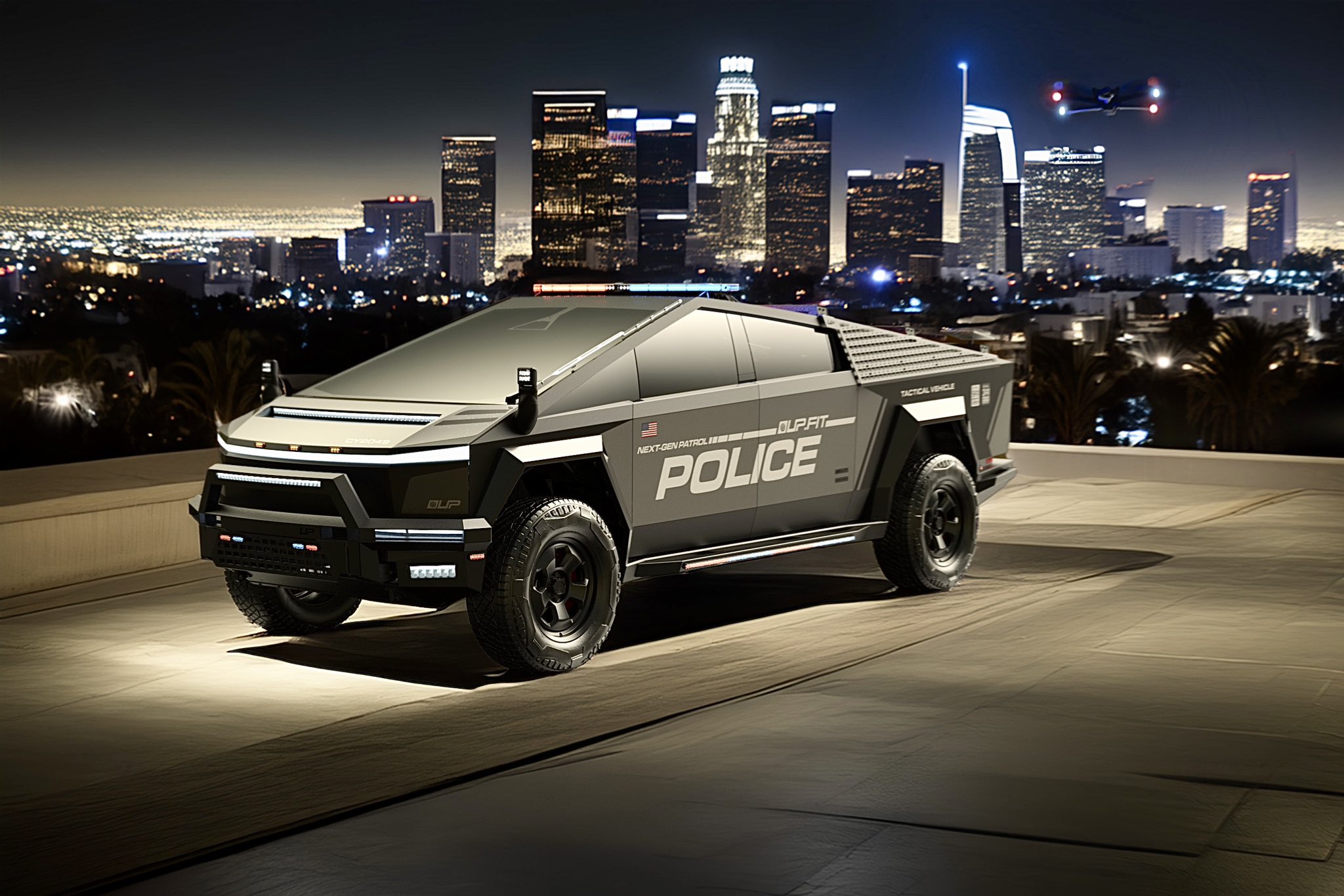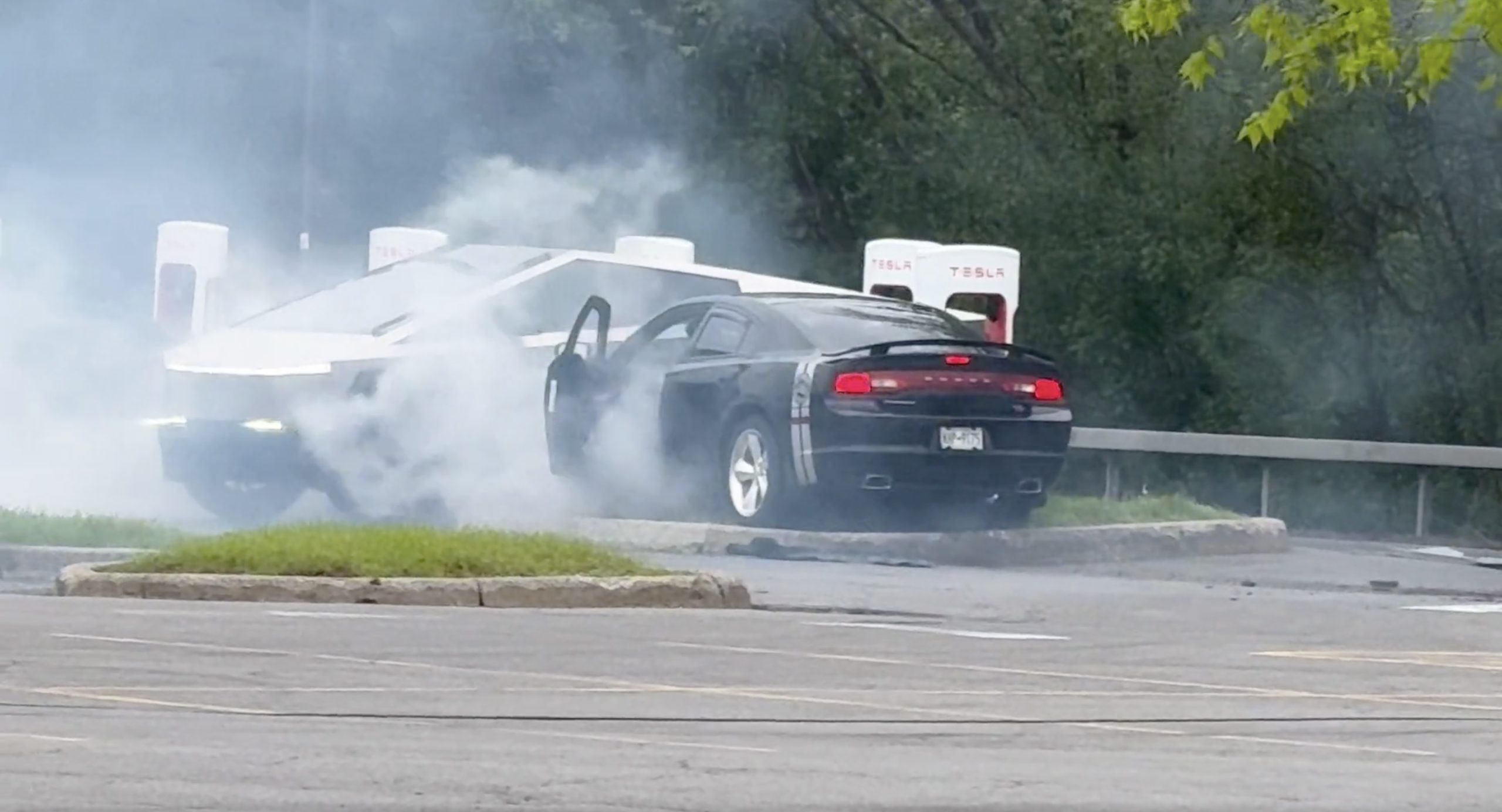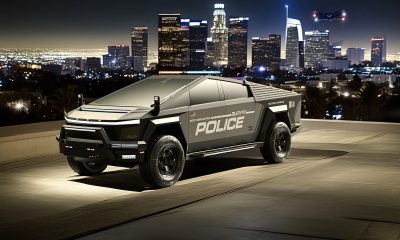

Lifestyle
The New Emissions Rollback: The Worst Move at the Worst Time
Welcome to a FREE preview of our weekly newsletter. Each week I go ‘Beyond the News’ and handcraft a special edition that includes my thoughts on the biggest stories, why it matters, and how it could impact the future.
A big thanks to our long-time supporters and new subscribers! Thank you.
—
While many of us are dealing with the ongoing effects of the COVID-19 pandemic that continues to sweep through countries across the world, the virus is, unfortunately, one of many things that humans are forced to deal with daily. While an invisible sickness rips through much of the world, the global climate crisis is an issue that people across the globe have been dealing with for years, even though it is a relatively “new” issue in the big picture of time.
Former U.S. President Barack Obama implemented a set of rules in 2012 that required automakers to improve fuel economy standards by at least 5% every year. This standard would have led to vehicles with the “2026” Model year averaging 54 miles per gallon.
However, this rule was recently revised and subjected to a rollback, making it 3.5% less than its intended, and environmentally-beneficial, 5% rating. This new standard brings the average rating for vehicles in 2026 to just around 40 miles per gallon, a result that will eventually burn more poisonous gas into the atmosphere. A far cry from what the previous emissions standards were, the rollback entails that a new and dangerous level of carbon emissions will be allowed to be released into the air. This amount of emissions being released into the atmosphere could set back massive amounts of environmental progress that our country has made. Meanwhile, the changes negatively affect the entire world, not just our country.
According to an article from the Verge, the Natural Resources Defense Council (NRDC) estimates the old standard of 5% improvement over fuel efficiency year-by-year has cut CO2 emissions by half a billion metric tons and saved drivers $86 billion dollars at the pump. These numbers are according to the Environmental Protection Agency.
Meanwhile, the rollback is expected to release an additional billion metric tons of CO2 into the Earth’s atmosphere and increase oil consumption by 2 billion barrels, along with an extra 80 billion gallons of gasoline thanks to lower MPG standards.
The time to create less efficient fuel standards for our gas and petrol-powered vehicles is not now. In all honesty (and in my personal opinion), there is not a time to do it. Our Earth is at absolute an absolute crisis, or what Michael Scott would call “Threat Level Midnight.”
The arguments for the lower emissions standards: better fuel economy creates more expensive cars at purchase, which leads to many people sticking with their current vehicles or buying used cars. These older cars usually have lower safety standards, making them less safe to drive. Apparently, lowering the fuel standards will eliminate $1,000 from the cost of a new vehicle, making more cars on the road more reliable, while providing an added boost to the economy through vehicle purchases.
The problem is, a lower sticker price does not necessarily mean less money spent throughout the life of a vehicle. A Consumer Reports study showed that if gas prices were $1.50 for the next 30 years, the newly introduced rollback “would still increase new vehicle total cost of ownership for consumers.”
Here’s the thing: It is a great idea to make new cars cheaper. Sure, everyone loves the excitement (and smell) of a brand new vehicle. I think a new car is one of my favorite things, along with a high-quality sushi meal, Good Will Hunting on a low-key Friday evening, and a great workout. However, I also like living on Earth, and I appreciate the fact that my small, rural area of Southern York County, Pennsylvania does not have too many environmental issues. Of course, there is always the occasional “coal roll” I get from someone for driving an environmentally-friendly car.
The issue is the fact that no evidence suggests this new rollback will save money in the long term, and the new standards will hurt the environment. You would think analysts, or statisticians, or number crunchers would do some sort of research regarding the long-term economic effects on this subject. Just because someone is saving $1,000 upfront on the purchase of a car, it doesn’t necessarily mean things are going to be cheaper in the long run.
The responsibility of humans to do their part to decrease environmental damage at this point is absolutely imperative. There is no reason to continue the rollback of emissions standards when climate change is a scientifically proven issue. Vehicles need to become cleaner and cleaner, and to do this, automakers need to be held responsible. They’re making enough money, and it is an absolute necessity to begin transitioning to cleaner forms of transportation.
Join me next week as I go ‘Beyond the News’ and give you my take on the current state of the industry and beyond.
While many automakers have initiated this step into their future plans, the way to put pressure on some of the larger carmakers is to make emissions standards more strict. Eventually, it would be ideal to get all cars to run off of sustainable forms of energy. It would be best for the environment, and better for our pockets. After all, the amount of clean air that has come from gas-powered cars being off the road is evident. Skies are clear in Los Angeles, and water is cleaner in Italy.
What do you think about the new emissions rollbacks? Do you agree with the new standards, or do you think they should have been left the way they were? Let me know on Twitter or through email!
I use this newsletter to share my thoughts on what is going on in the Tesla world. If you want to talk to me directly, you can email me or reach me on Twitter. Reach out!
-Joey
Lifestyle
EV fans urge Tesla to acquire Unplugged Performance for edge in fleet and security industry
Unplugged Performance has built a name for itself by producing performance upgrades for Tesla vehicles.

A growing number of Tesla enthusiasts and longtime community voices are calling on the electric vehicle maker to acquire Unplugged Performance, a California-based aftermarket company best known for tuning Tesla vehicles and developing specialized government fleet solutions under its UP.FIT division.
The idea was once considered a niche proposal among EV fans, but it is now gaining serious attention not just as a performance play but as a strategic move to deepen Tesla’s roots in the fleet and security industry.
A strategic fit
Unplugged Performance has built a name for itself by producing performance upgrades for Tesla vehicles, from track-optimized components to visual and aerodynamic upgrades. But in recent years, its UP.FIT division has pivoted toward a more functional future by outfitting Tesla vehicles like Model Ys for police, military, and government use.
That work has sparked growing calls for closer collaboration with Tesla, especially as the EV maker increasingly leans into autonomy, AI, and fleet services as core components of its next chapter.
“I posted this four years ago, but I think it’s more true now than ever,” wrote Whole Mars Catalog, a well-known Tesla investor and FSD Beta tester, on X. “Tesla should buy Unplugged. But not just as a Performance division. What they are doing with UP.FIT unlocks large government and commercial fleet purchases that can improve utilization.”
Tesla fans such as shareholder Sawyer Merritt echoed the sentiment, calling Unplugged a “great fit within Tesla.” adding, “They are literally located directly next to Tesla’s design studio in Hawthorne.”
Enabling the next wave
Supporters of the idea noted that integrating Unplugged into Tesla’s corporate structure could help accelerate the adoption of autonomous technologies in government sectors. With UP.FIT patrol cars already in use across some U.S. police departments, Tesla fans envisioned a future where self-driving Teslas could potentially revolutionize law enforcement, search-and-rescue, and public service logistics.
“Just imagine how autonomous patrol cars could transform policing and bring us into a safer future,” the veteran FSD tester wrote.
The benefits could also extend to Tesla’s existing consumer base. “They also have some incredible products in the works that I think will appeal to many ordinary Tesla drivers — not just those looking for performance or mods. Stuff that’s so good it should have come straight from the design studio next door,” Whole Mars Catalog noted.
Unplugged Performance, founded in 2013, shares not just a product vision with Tesla, but also geography. Its Hawthorne headquarters sits directly adjacent to Tesla’s design studio, and the two companies have maintained a close working relationship over the years. The aftermarket firm has long positioned itself as a “mission-aligned” partner to Tesla.
In response to the recent calls for acquisition, Unplugged Performance acknowledged the support from the community. “Our very existence is to support the Tesla mission with @UpfitTesla and @UnpluggedTesla,” Unplugged CEO Ben Schaffer posted on X. “We love working with Tesla and are grateful for the community’s support since 2013!”
Elon Musk
X account with 184 followers inadvertently saves US space program amid Musk-Trump row
Needless to say, the X user has far more than 184 followers today after his level-headed feat.

An X user with 184 followers has become the unlikely hero of the United States’ space program by effectively de-escalating a row between SpaceX CEO Elon Musk and President Donald Trump on social media.
Needless to say, the X user has far more than 184 followers today after his level-headed feat.
A Near Fall
During Elon Musk and Donald Trump’s fallout last week, the U.S. President stated in a post on Truth Social that a good way for the United States government to save money would be to terminate subsidies and contracts from the CEO’s companies. Musk responded to Trump’s post by stating that SpaceX will start decommissioning its Dragon spacecraft immediately.
Musk’s comment was received with shock among the space community, partly because the U.S. space program is currently reliant on SpaceX to send supplies and astronauts to the International Space Station (ISS). Without Dragon, the United States will likely have to utilize Russia’s Soyuz for the same services—at a significantly higher price.
X User to the Rescue
It was evident among X users that Musk’s comments about Dragon being decommissioned were posted while emotions were high. It was then no surprise that an X account with 184 followers, @Fab25june, commented on Musk’s post, urging the CEO to rethink his decision. “This is a shame this back and forth. You are both better than this. Cool off and take a step back for a couple days,” the X user wrote in a reply.
Much to the social media platform’s surprise, Musk responded to the user. Even more surprising, the CEO stated that SpaceX would not be decommissioning Dragon after all. “Good advice. Ok, we won’t decommission Dragon,” Musk wrote in a post on X.
Not Planned, But Welcomed
The X user’s comment and Musk’s response were received extremely well by social media users, many of whom noted that @Fab25june’s X comment effectively saved the U.S. space program. In a follow-up comment, the X user, who has over 9,100 followers as of writing, stated that he did not really plan on being a mediator between Musk and Trump.
“Elon Musk replied to me. Somehow, I became the accidental peace broker between two billionaires. I didn’t plan this. I was just being me. Two great minds can do wonders. Sometimes, all it takes is a breather. Grateful for every like, DM, and new follow. Life’s weird. The internet’s weirder. Let’s ride. (Manifesting peace… and maybe a Model Y.)” the X user wrote.
Lifestyle
Tesla Cybertruck takes a bump from epic failing Dodge Charger
The Cybertruck seemed unharmed by the charging Charger.

There comes a time in a driver’s life when one is faced with one’s limitations. For the driver of a Dodge Charger, this time came when he lost control and crashed into a Tesla Cybertruck–an absolute epic fail.
A video of the rather unfortunate incident was shared on the r/TeslaLounge subreddit.
Charging Charger Fails
As could be seen in the video, which was posted on the subreddit by Model Y owner u/Hammer_of_something, a group of teens in a Dodge Charger decided to do some burnouts at a Tesla Supercharger. Unfortunately, the driver of the Charger failed in his burnout or donut attempt, resulting in the mopar sedan going over a curb and bumping a charging Cybertruck.
Ironically, the Dodge Charger seemed to have been parked at a Supercharger stall before its driver decided to perform the failed stunt. This suggests that the vehicle was likely ICE-ing a charging stall before it had its epic fail moment. Amusingly enough, the subreddit member noted that the Cybertruck did not seem like it took any damage at all despite its bump. The Charger, however, seemed like it ran into some trouble after crashing into the truck.
Alleged Aftermath
As per the the r/TeslaLounge subreddit member, the Cybertruck owner came rushing out to his vehicle after the Dodge Charger crashed into it. The Model Y owner then sent over the full video of the incident, which clearly showed the Charger attempting a burnout, failing, and bumping into the Cybertruck. The Cybertruck owner likely appreciated the video, in part because it showed the driver of the Dodge Charger absolutely freaking out after the incident.
The Cybertruck is not an impregnable vehicle, but it can take bumps pretty well thanks to its thick stainless steel body. Based on this video, it appears that the Cybertruck can even take bumps from a charging Charger, all while chilling and charging at a Supercharger. As for the teens in the Dodge, they likely had to provide a long explanation to authorities after the incident, since the cops were called to the location.
-

 Elon Musk2 weeks ago
Elon Musk2 weeks agoTesla investors will be shocked by Jim Cramer’s latest assessment
-

 Elon Musk2 days ago
Elon Musk2 days agoxAI launches Grok 4 with new $300/month SuperGrok Heavy subscription
-

 Elon Musk5 days ago
Elon Musk5 days agoElon Musk confirms Grok 4 launch on July 9 with livestream event
-

 News1 week ago
News1 week agoTesla Model 3 ranks as the safest new car in Europe for 2025, per Euro NCAP tests
-

 Elon Musk1 week ago
Elon Musk1 week agoxAI’s Memphis data center receives air permit despite community criticism
-

 News2 weeks ago
News2 weeks agoXiaomi CEO congratulates Tesla on first FSD delivery: “We have to continue learning!”
-

 Elon Musk2 weeks ago
Elon Musk2 weeks agoTesla scrambles after Musk sidekick exit, CEO takes over sales
-

 News2 weeks ago
News2 weeks agoTesla sees explosive sales growth in UK, Spain, and Netherlands in June

















